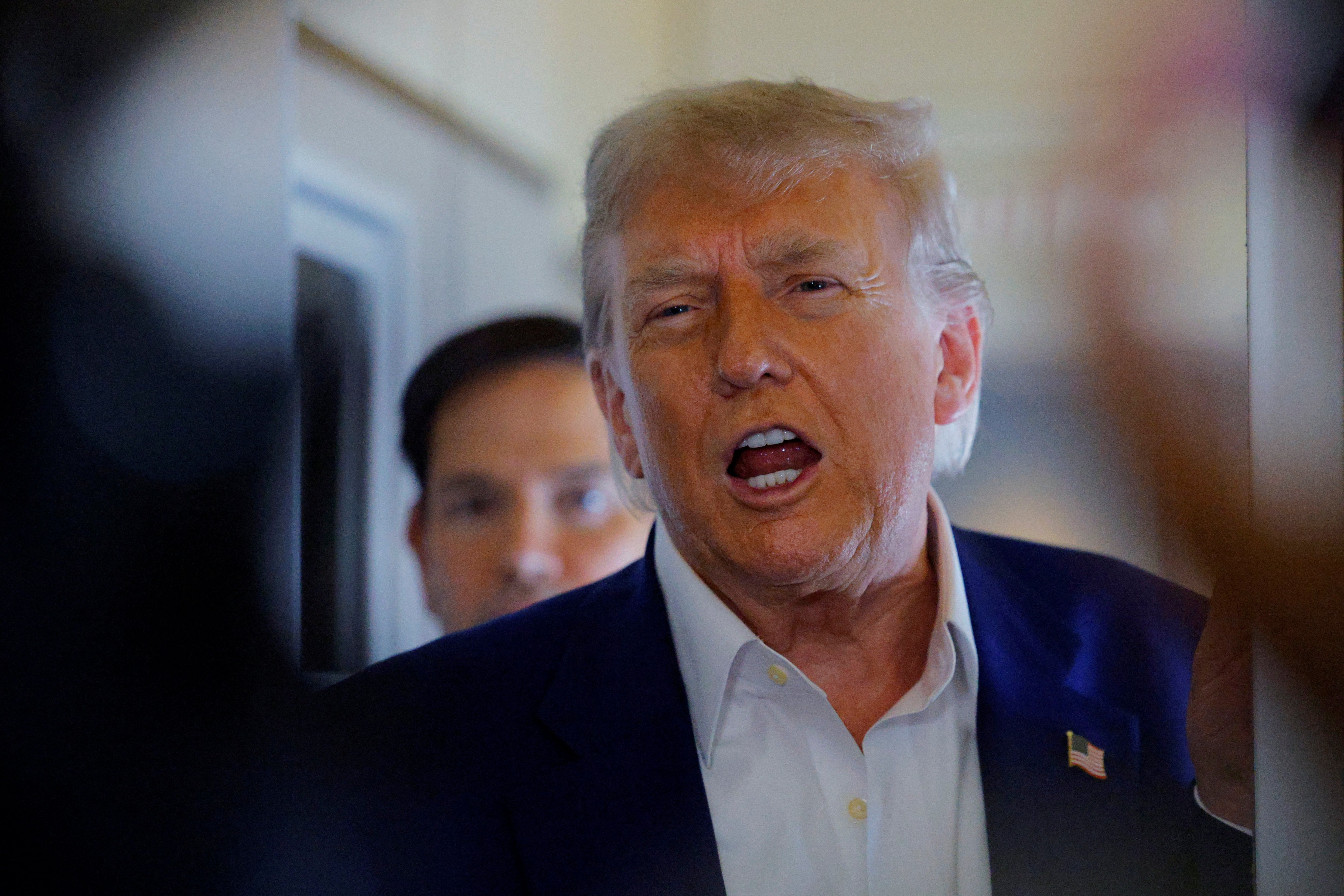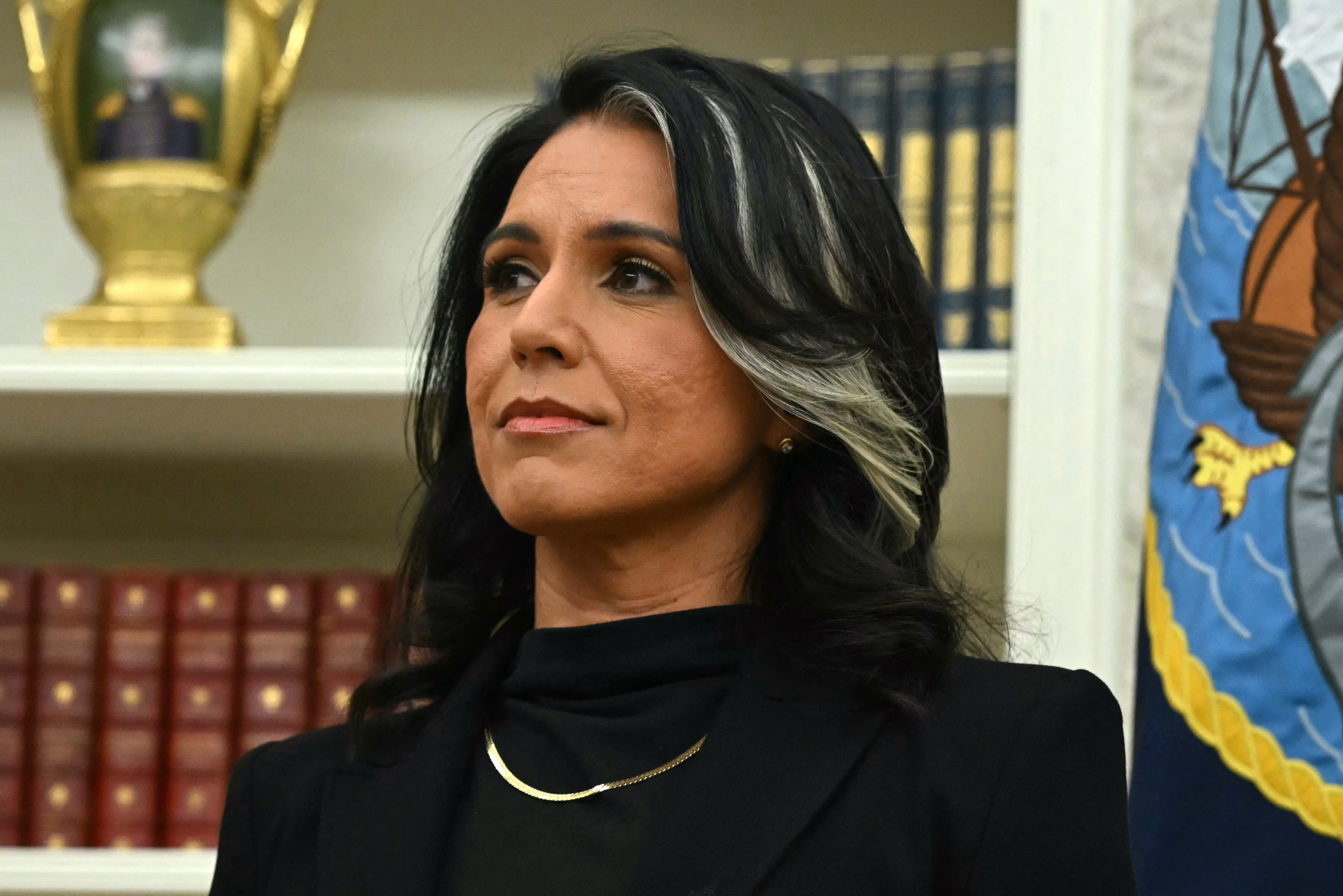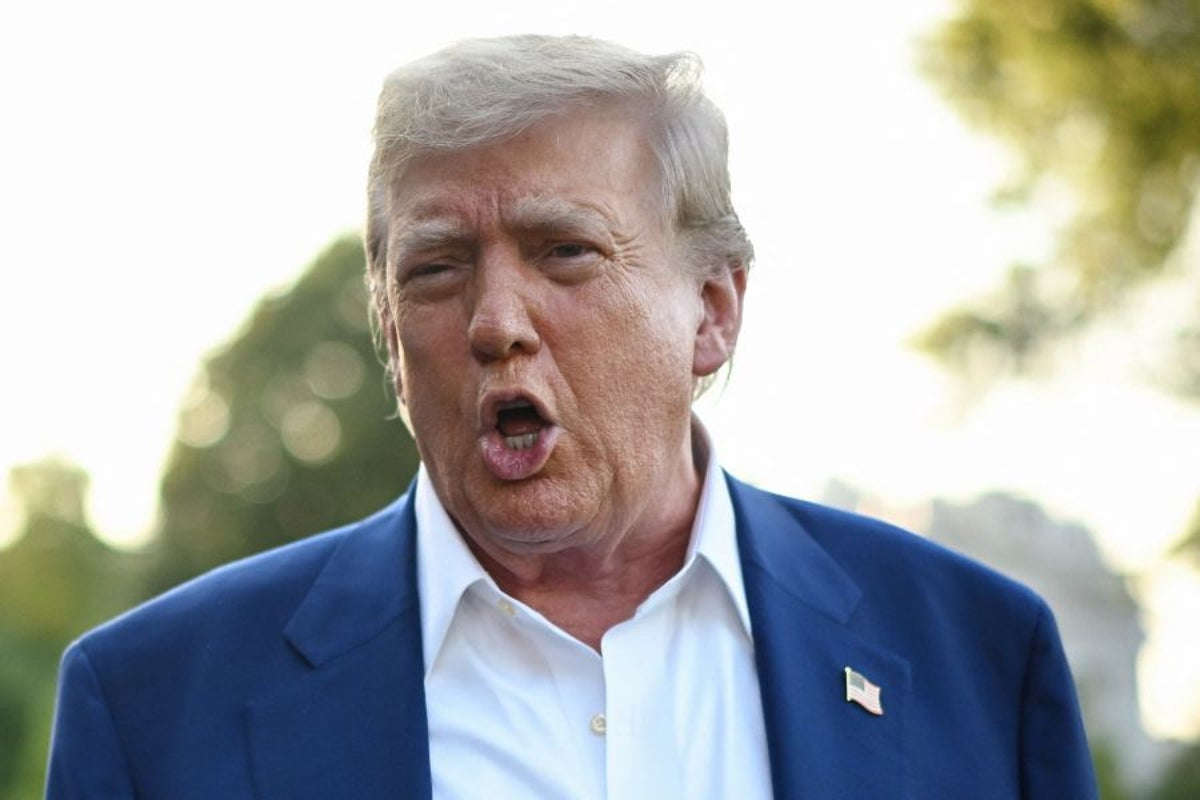Donald Trump made it clear over the weekend: he wants to be the most powerful president in modern history.
He may already be.
Saturday evening’s announcement of U.S. strikes on three Iranian targets tied to the country’s nuclear program triggered angry statements from Democrats who accused the president of drawing the country into another Middle East war with potentially no end in sight.
Now directly involved, U.S. participation in the Iran-Israel conflict quickly became an opportunity for Trump to both push the boundaries of the Executive Branch’s power and continue a trend he began in January: the centralization of the Executive Branch’s policy and power within the Oval Office.
Driving that effort is the president’s willingness to contradict his own deputies and top advisors, sometimes within just hours of their own public assessments.

On Iran, Trump accelerated this dynamic to the point where the buildup to three American strikes against Iranian targets Saturday resembled a cartoonish version of the Bush administration’s justification of war with Iraq in 2002.
But where Republican officials with George W. Bush’s administration presented what they claimed at the time was evidence of Iraq’s arsenal of weapons of mass destruction an analysis that lrgelty proved to be false — Trump used the the opposite tactic: the public denial of his Director of National Intelligence, Tulsi Gabbard, that Iran was working on nuclear weapons.
“My intelligence community is wrong,” Trump told reporters in a gaggle on Friday, asked about Gabbard’s previous public assessment. “Who in the intelligence community said that?”
“Your director of national intelligence, Tulsi Gabbard,” a reporter replied.
“She’s wrong,” Trump repeated.

That echoed comments he made earlier in the week, on his way back from a G7 summit in Canada.
“I don’t care what she said,” the president told reporters aboard Air Force One. “I think they were very close to having one.”
His belief versus the DNI’s intel. Guess which won.
The latest example of that dynamic occurred on Sunday, when Vice President J.D. Vance assured Kristen Welker of NBC’s Meet the Press in a sit-down interview presumably planned out by the White House in the wake of Saturday’s attacks that the U.S. was not seeking “regime change” in Iran.
“Our view has been very clear that we don’t want a regime change. We do not want to protract this or build this out any more than it’s already been built out. We want to end their nuclear program, and then we want to talk to the Iranians about a long-term settlement here,” said Vance.

That rationale seemed to broadly justify the forceful-but-limited action taken against specific targets in Iran Saturday night while aiming to appease the MAGA isolationists wary of a deeper U.S. involvement that regime change almost always necessitates.
But within hours, Trump wholly undermined his running mate in a Truth Social posting: “It’s not politically correct to use the term, ‘Regime Change,’ but if the current Iranian Regime is unable to MAKE IRAN GREAT AGAIN, why wouldn’t there be a Regime change??? MIGA!!!”
It’s hard to believe Trump’s statement wasn’t an intentional snub. But intent aside, the message is the same: only the president’s whims and gut instinct matters now, and in the case of both Iran and his tariff agenda (another power snatched from the Legislative Branch), Trump has shown that he can change his mind on a dime.
As Tuesday dawned on Washington, there were still no signs of any Republicans joining the lonely Rep. Thomas Massie (R-Ky.) on his bipartisan resolution aimed at reining in the president’s war powers.
Overnight, an uneasy ceasefire between Iran and Israel was rammed into place by the U.S. president, who by late Tuesday morning was already haranguing both sides over violations. Shaky as it may be, it likely will kill any momentum the resolution (and a concurrent measure in the Senate) had.
Under the U.S. Constitution, Congress is the only body with the power to declare war, but presidents typically get around that by using their executive authority and by asking Congress to authorize the use of military force after the fact.
By Tuesday afternoon 128 Democrats had joined all House Republicans to roundly defeat a push by progressives — introduced by constant Trump combatant Rep. Al Green and championed by his regular punching bag Rep. Alexandria Ocasio-Cortez — to have Trump impeached over his actions against Iran without congressional consent.
Massie, meanwhile, is the latest example of Trump’s eagerness to make an example of any GOP official who dares counter him. The president over the weekend announced the creation of a political action committee aimed at trashing the congressman in his home state of Kentucky.
The message that Trump is sending to elected members of his party is clear: stay in line, or you’ll be next.
On Monday, MAGA Rep. Marjorie Taylor Greene (who maintains a shaky but generally positive relationship with Trump) released her own lengthy statement condemning the possibility of U.S.-backed regime change efforts in Iran, which would likely involve full-scale war.
“It feels like a complete bait and switch to please the neocons, warmongers, military industrial complex contracts, and neocon tv personalities that MAGA hates and who were NEVER TRUMPERS!” the Georgia Republican unleashed in a Twitter rant.
“Trump is not a king, MAGA is not a cult, and I can and DO have my own opinion,” Greene proclaimed.

Democrats and even some supporters of the Iraq War found themselves cautioning against or outright condemning the idea of America sustaining the kind of military footprint it did throughout the 2000s and 2010s.
“President Trump must provide the American people and Congress clear answers on the actions taken tonight and their implications for the safety of Americans. No president should be allowed to unilaterally march this nation into something as consequential as war with erratic threats and no strategy,” said Senate Minority Leader Chuck Schumer.
At The Bulwark, the center-right publication helmed by former Weekly Standard editor Bill Kristol, podcaster and author J.V. Last wrote this week that American supporters of regime change were ignoring an uncomfortable truth about the fall of the Iranian government; namely, that it would require sustained U.S. intervention to ensure that a similarly beligerent state did not come to power in the resulting vacuum.
“H]ere’s a hard truth: If Iran was teetering on the brink of failure, then somebody from the outside would have to go in and secure a bunch of stuff to make sure it doesn’t fall into the hands of rogue, non-state actors,” Last wrote on Monday.
“And that somebody would almost certainly have to be the United States.”
The view is shared by the farthest-right members of the House, who are coincidentally also the strongest critics of foreign military engagement.

But despite Greene and numerous other allies of the president coming out against war ahead of Saturday’s conflict, there’s almost zero chance that this issue will create a real divide among Republicans in Congress, who are near-unanimously opposed to any defiance of the president. Greene herself lacks clout in this department, as evidenced by her and Massie’s failed bid to unseat House Speaker Mike Johnson last year.
As the president asserts his will over a meek Republican Congress, the president is taking other steps to shift policy decisions typically made at the agency or Cabinet level to his desk.
And that’s been bolstered by the efforts of DOGE, which leashed many federal agencies to the White House as it sought to make wide-ranging cuts and personnel reductions at a slew of federal offices. Those moves left them with no leadership able or willing to counter the White House on any given matter.
But Trump himself has also driven this centralization with that clear willingness to publicly contradict his closest advisors and deputies, sometimes within a matter of hours — making it clear that there’s one voice that matters in the end.
What truly sets the president apart from his predecessors is not a willingness to grab power from Congress, which many presidents have done dating back decades, or even his frequent humiliation of his closest allies. Trump’s truly unique characteristic — even setting his second presidency apart from his first term — is the fervor with which his White House has challenged both the Judicial Branch and state leaders around the country.
For months, the Justice Department and DHS fought with courts who ordered the U.S. facilitate the return of Kilmar Abrego Garcia, an El Salvadoran man illegally deported back to his home country in violation of a judge’s order.
The two branches deadlocked over whether judges were allowed to affect what the Trump administration insisted was a matter of foreign policy for weeks. Abrego Garcia is now back in the U.S., but Homeland Security officials indicated Monday that they are still determined to deport him — which could still happen if another country besides El Salvador accepts him.
The president’s show of force in California, against the wishes of the governor and mayor of Los Angeles, is his administration’s first (but likely not final) push into seizing authority from state-level officials. There’s no question that this is a matter of policy, not merely a response to factors on the ground in L.A.; Rolling Stone reports that Trump was looking for opportunities to “send in the troops” just days and weeks after taking office.
With Abrego Garcia’s return, the administration has backed off of its direct confrontation with one branch of government — for now. The second is unlikely to push back in any meaningful way until Democrats retake one or both chambers of Congress, which could happen in 2027, though it’s uncertain.
For Trump, the question is no longer whether his administration is willing to cross lines; it’s how far they’re willing to push them. And how much will the Democrats claw back, if and when they ever get the chance?



